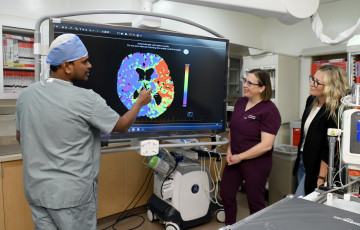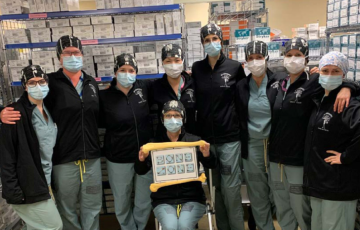A neuropsychological evaluation helps us get a better understanding of a child's memory, attention, perception, language, visual-spatial abilities, problem solving, planning, abstract reasoning and personality.
Neuropsychology Services offers assessments and psychoeducational/rehabilitation plans for children who have been diagnosed with neurological or neurological/ neurodevelopmental medical conditions where brain dysfunction is suspected to affect their cognitive abilities, learning in school, or day to day behaviours.
Criteria
Our criteria require demonstrated disturbances in brain functioning contributing to difficulties in at least two aspects of daily living (e.g., in home, school, or community). This testing involves the assessment of cognitive and emotional functioning.
For example, children with:
- seizures
- traumatic or other acquired brain injuries
- brain infections
- brain tumours
- cerebrovascular disease
- cerebral malformations
- encephalitis/meningitis
- genetic-metabolic disease
- hydrocephalus
- movement disorders
- muscle diseases
- progressive/neurodegenerative conditions
- spina bifida
- stroke
- cognitive or neurological complications of medical interventions or other medical conditions (e.g., side effects of cranial radiation, chemotherapy, or heart surgery)
- a history of having undergone neurosurgery
- genetic syndromes and associated cognitive deficits
- neurological symptoms with no clear neurological basis, but who are actively being investigated by medical specialists
Assessment
Children and adolescents with documented evidence of a neurological, neurodevelopmental or other medical condition affecting brain function are considered for evaluation by our program.
Children who have sustained an acquired brain injury within the past 12 months, or those with acute or urgent medical needs, will be given priority and seen at the soonest possible time.
Neuropsychological assessments take time and therefore the child needs to be able to attend to and cooperate with standardized test procedures.
Children with severe generalized developmental delay, severe behaviour disorders, or severe motor or communication disorders are unlikely to be able to complete tests beyond those available from school districts or developmental programs/clinics, and are therefore not eligible for Neuropsychology Services.
Neuropsychological Services does not assess children who require a diagnosis primarily for funding purposes, nor those with ADHD or a learning disability (without an accompanying medical condition). Children in these categories are referred to school districts, psychologists consulting to child development centres, or other community services.



